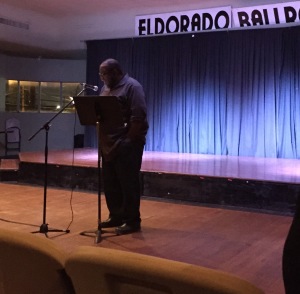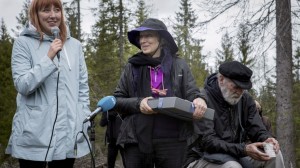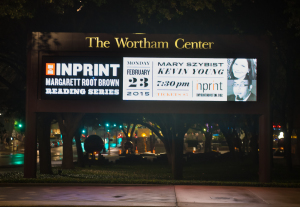Dispatch 16: Chris Cander and The Weight of a Piano make a final tour stop in Chicago
March 21, 2019, by Chris Cander
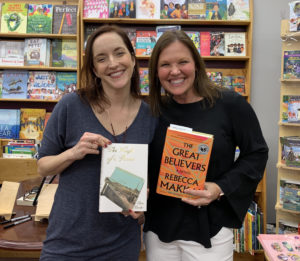 Houston author Chris Cander’s “Dispatches from Book Tour,” a multi-week blog series of reflections and updates along her 17-city U.S. book tour for her new novel The Weight of a Piano (published by Knopf), comes to a close with Dispatch 16, from Chicago.
Houston author Chris Cander’s “Dispatches from Book Tour,” a multi-week blog series of reflections and updates along her 17-city U.S. book tour for her new novel The Weight of a Piano (published by Knopf), comes to a close with Dispatch 16, from Chicago.
Friday, March 15, 2019
I blew into the windy city for the final official stop on my book tour. Before my event, I asked my Uber driver to take me to the Brewster Apartments, which was the building I fictionalized in my novel 11 Stories. I took along the miniature piano I photographed in Death Valley while I was writing The Weight of a Piano, and held it up right about where my protagonist Roscoe fell from the roof of the building in the novel. (Roscoe, meet Mini #Blüthner; Mini Blüthner, meet Roscoe.) Continue reading



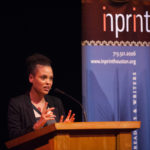 Another of the 2017 MacArthur “genius” fellowship recipients is novelist Jesmyn Ward, who appeared in the Inprint Margarett Root Brown Reading Series in March 2013. You can watch a video
Another of the 2017 MacArthur “genius” fellowship recipients is novelist Jesmyn Ward, who appeared in the Inprint Margarett Root Brown Reading Series in March 2013. You can watch a video 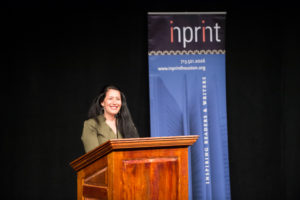 Last Monday, the Inprint Margarett Root Brown Reading Series welcomed poets Ada Limón and Gregory Pardlo. The poets, former classmates at NYU, have both recently been recognized: Limón’s
Last Monday, the Inprint Margarett Root Brown Reading Series welcomed poets Ada Limón and Gregory Pardlo. The poets, former classmates at NYU, have both recently been recognized: Limón’s 